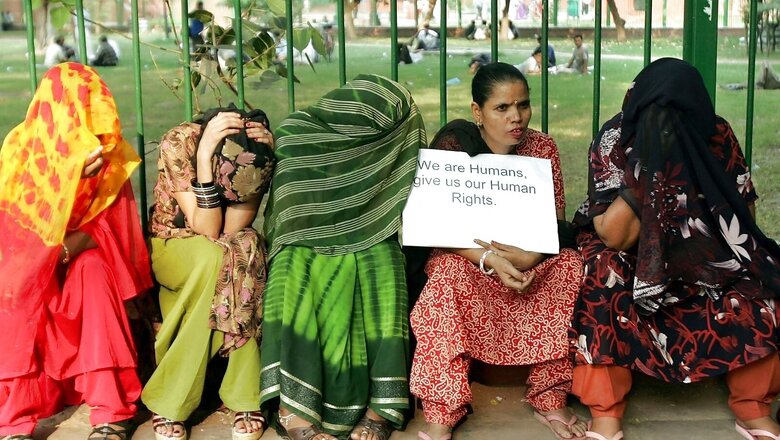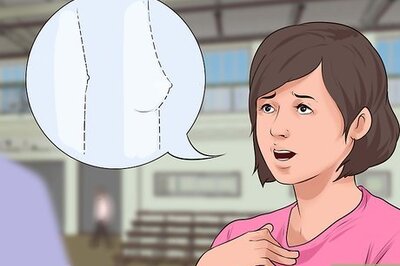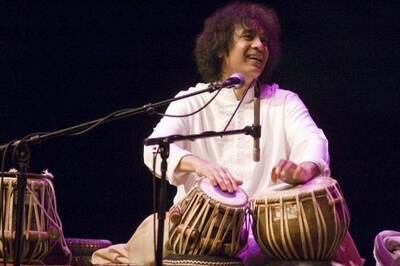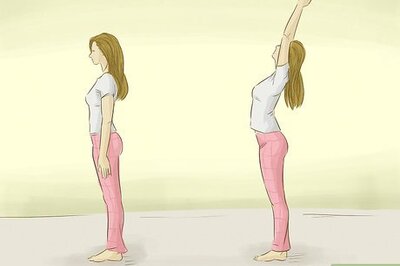
views
Zareena was inside her room at a brothel in Mumbai’s vast red-light district when police officers burst in, she recalled recently, looking for a woman thought to be a victim of sex trafficking.
When they took the woman away, Zareena said that she had followed them to the police station because she feared that the woman would be injured in custody. But, she said, once there, she was detained, despite having committed no crime. She spent that night in 2019, like so many others over the years, inside a lockup.
An order handed down from India’s top court this month may help to make such experiences less common.
Although prostitution is legal in India, those who practice it have long faced marginalization, violence and police harassment. A panel set up in 2011 to examine these issues has made a series of recommendations over the past six years, but none have been written into law.
Instead, the Indian Supreme Court has been steadily removing barriers that deny prostitutes their constitutional rights, including, most recently, the order this month, which focused on police enforcement of laws against sex crimes.
In that order, the court identified two categories: consenting adults voluntarily employed in prostitution; and minors, trafficking victims and those eager to leave the industry.
For consenting adults, the court said, police must refrain from arrests and other forms of harassment. India’s state governments were directed to develop rehabilitation programs for those in the second category.
“It has been noticed that the attitude of the police to sex workers is often brutal and violent,” the court wrote.
“It is as if they are a class whose rights are not recognized,” the court added. “The police and other law enforcement agencies should be sensitized to the rights of sex workers who also enjoy all basic human rights and other rights guaranteed in the constitution to all citizens. Police should treat all sex workers with dignity.”
The order will “save thousands of sex workers from unnecessary harassment and intimidation from the police,” said Biplab Mukherjee, an adviser for the Durbar Mahila Samanwaya Committee, a collective representing workers in the industry that is based in the Indian city of Kolkata, the capital of West Bengal state.
The court also clarified that prostitutes should not be separated from their children.
The Supreme Court in India steps in when the justices feel that the government has failed to address a constitutional issue through legislation. In the past, for example, the court has set out rules to prevent sexual harassment at the workplace that years later became the basis of a law.
India is among a small handful of countries, including Canada and New Zealand, that have instituted legal protections for prostitutes. Although performing sexual acts for money itself is legal, running a brothel and other related activities, like soliciting and pimping, are not.
Rights groups estimate that India has about 900,000 prostitutes. Most, they say, have been pushed into the work by crushing poverty and sometimes forced into it by human traffickers. Others have chosen it over other informal employment opportunities, researchers have found.
Prostitutes are particularly vulnerable to violence, researchers say, in part because of the perception that they are criminals. In addition, police “ignore complaints related to family and partner violence” with regard to such workers and instead offer “advice to women about stopping sex work and settling domestic matters ‘amicably,’” according to a report by the Center for Advocacy on Stigma and Marginalization, a policy research group.
The Supreme Court order addresses something that the United Nations and other institutions have stressed: Decriminalizing sex work is, alone, not enough to improve conditions for workers in the industry. Governments need to lift other impediments to ensure equal treatment.
The latest order, handed down May 19, comes about six months after the Supreme Court required benefits for sex workers, saying that fundamental rights were guaranteed to all Indians, regardless of type of job. That ruling, from December, ordered the government to issue prostitutes with voter ID and food ration cards and to relax the verification requirements to do so.
The December order came after a panel of justices had directed federal and state governments to make food rations available to prostitutes during the pandemic, without requiring them to show ID.
Archana Pathak Dave, one of the states’ lawyers there to receive directions from the Supreme Court, said that the move was crucial during the pandemic. “Particularly in COVID times, these sex workers were actually starving because their work had stopped,” she said.
“The court fills in the gap until the time the legislation comes up, so it’s a very welcome move,” Pathak Dave said about the latest order.
Zareena, 55, who asked that only her first name be used because of the stigma attached to her profession, said that she had been trafficked into the sex trade at the age of 12 but that, as an adult, she chose to continue the work to support her four children.
She said that she had been arrested dozens of times and faced frequent harassment from authorities.
When she heard about the court’s directive Friday, she said, she was hopeful it would free prostitutes from the fear of being dragged into police stations, where they were often harassed for bribes.
“It is major relief and a good thing,” she said. “Who wants to be detained in a police station for earning a living?”
(Emily Schmall and Sameer [email protected] The New York Times Company)
Read all the Latest India News here




















Comments
0 comment